
Recurrent Neural Network (RNN)
9. Long Short Term Memory Networks (LSTMs) • LSTMs are a type of recurrent neural network (RNN) that can learn and memorize long-term dependencies. • LSTMs retain past information for long period of time. Hence, It is very useful in time-series prediction. • LSTMs have a chain-like structure where four (memory cell, forget, input, output) interacting layers communicate in a unique way.
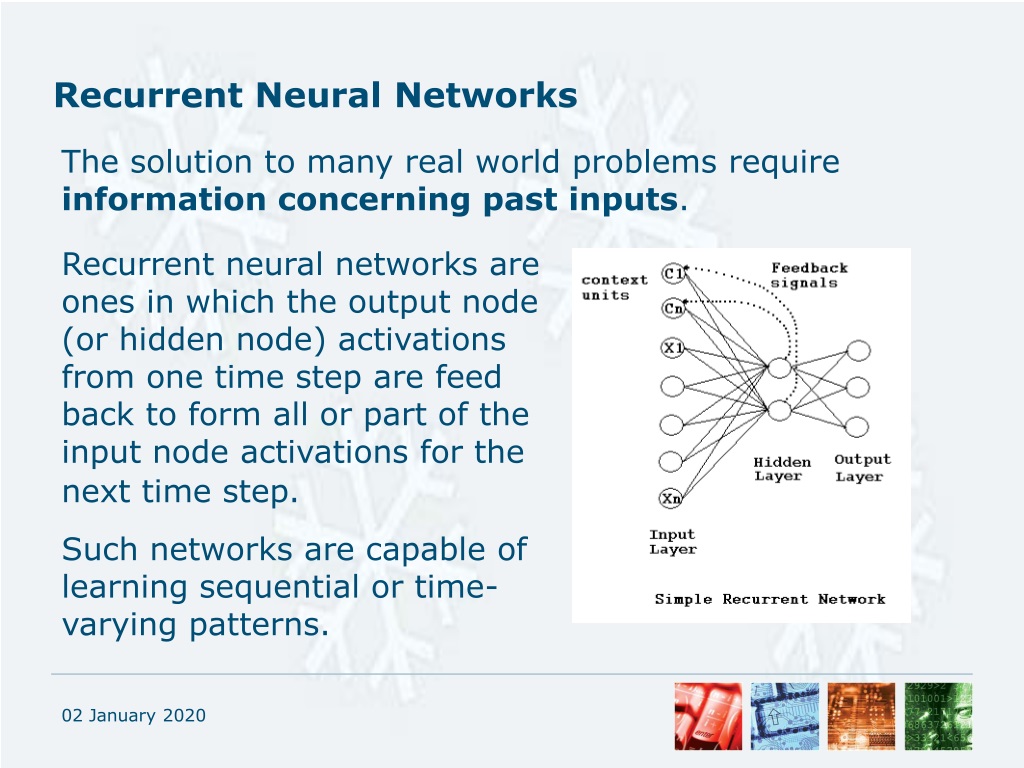
PPT Recurrent Neural Networks PowerPoint Presentation, free download
Recurrent Neural Network (RNN) is a type of Neural Network where the output from the previous step is fed as input to the current step. In traditional neural networks, all the inputs and outputs are independent of each other. Still, in cases when it is required to predict the next word of a sentence, the previous words are required and hence.
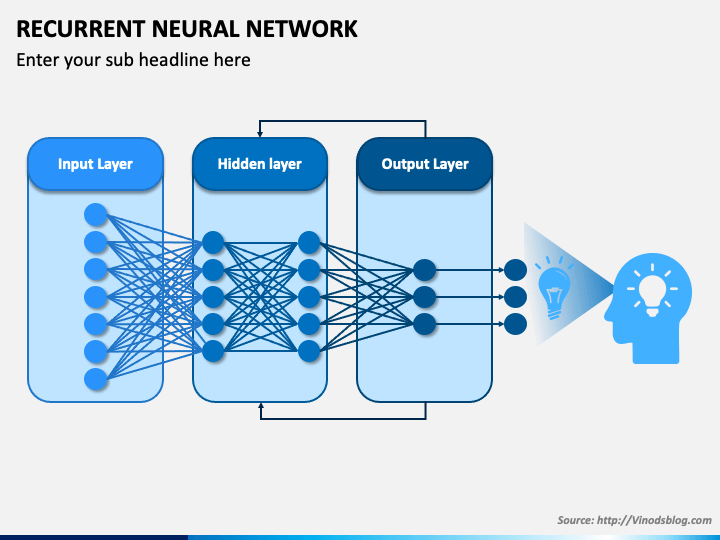
Recurrent Neural Network PowerPoint Template PPT Slides
A recurrent neural network (RNN) is a special type of artificial neural network adapted to work for time series data or data that involves sequences. Ordinary feedforward neural networks are only meant for data points that are independent of each other. However, if we have data in a sequence such that one data point depends upon the previous.

Recurrent Neural Networks Rnns Input Layer Powerpoint Presentation
Recurrent Neural Network x RNN y We can process a sequence of vectors x by applying a recurrence formula at every time step: Notice: the same function and the same set of parameters are used at every time step. Fei-Fei Li & Justin Johnson & Serena Yeung Lecture 10 - 22 May 4, 2017
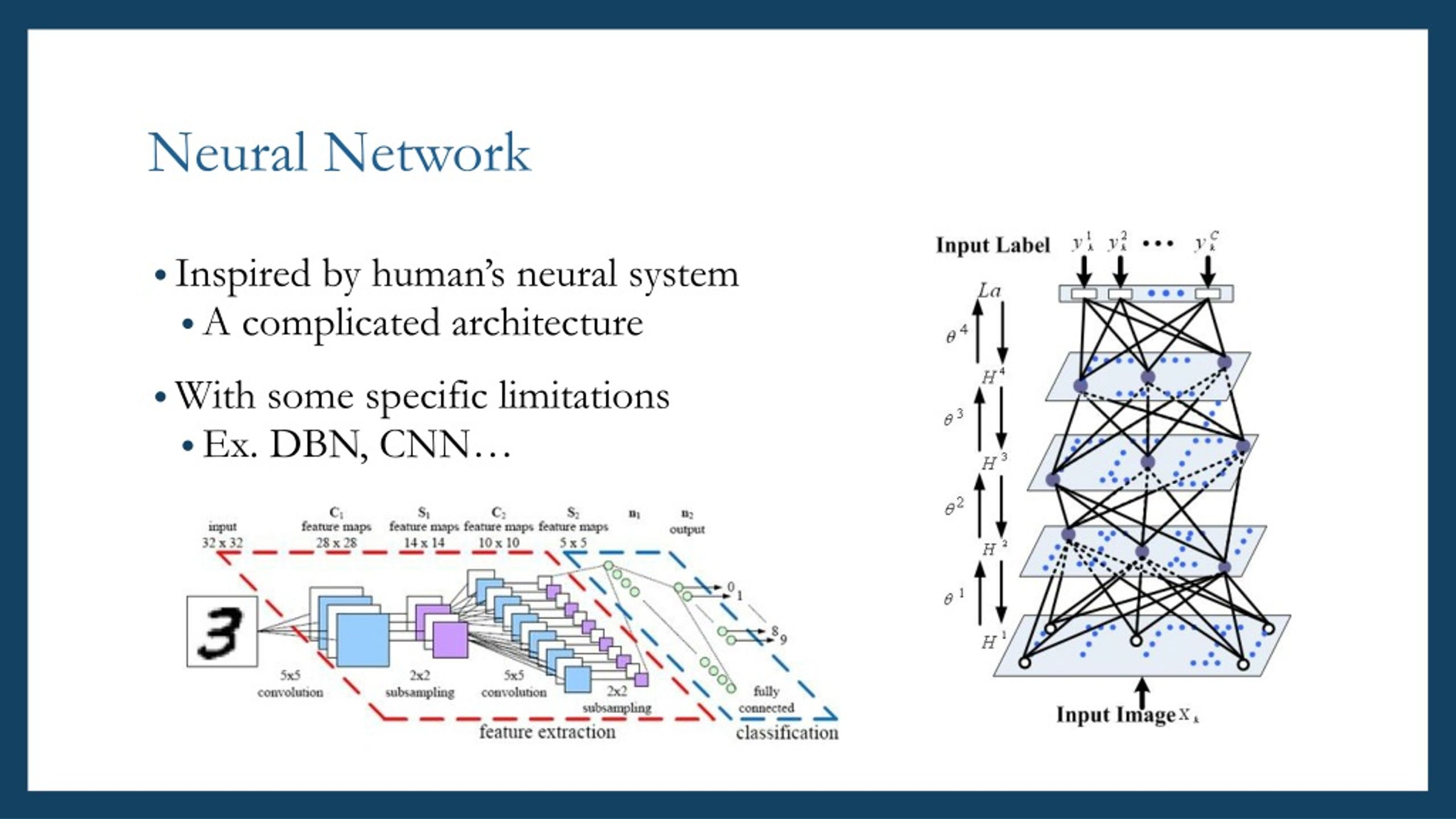
PPT Recurrent Neural Networks & LSTM PowerPoint Presentation ID8876003
L12-3 A Fully Recurrent Network The simplest form of fully recurrent neural network is an MLP with the previous set of hidden unit activations feeding back into the network along with the inputs: Note that the time t has to be discretized, with the activations updated at each time step. The time scale might correspond to the operation of real neurons, or for artificial systems

Recurrent Neural Networks RNNs Input Layer Ppt Powerpoint Presentation
Last Time: Recurrent Neural Networks. Fei-Fei Li, Ranjay Krishna, Danfei Xu Lecture 11 - 5 May 06, 2021. Neural Image Caption Generation with Visual Attention", ICML 2015 z 0,0 person z 0,1 z 0,2 z 1,0 z 1,1 z 1,2 z 2,0 z 2,1 z 2,2 Decoder: y t = g V (y t-1, h t-1, c t) New context vector at every time step. Fei-Fei Li, Ranjay Krishna.
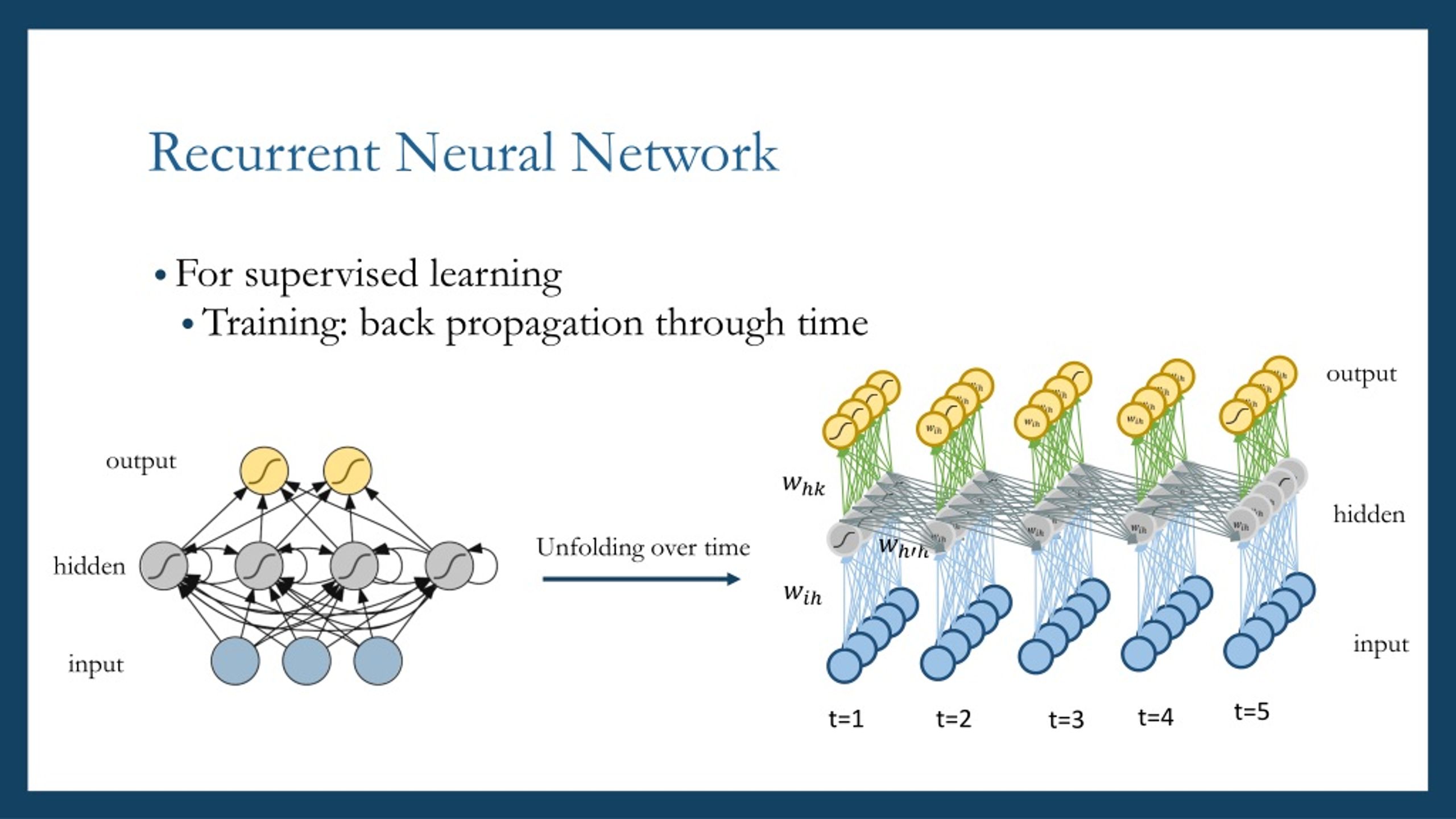
PPT Recurrent Neural Networks & LSTM PowerPoint Presentation ID8876003
Recurrent Neural Network • A network of neurons with feedback connections • For time-varying input • It's good at temporal processing and sequence learning input input time time. Recurrent Neural Network • For supervised learning • Training: back propagation through time output output • hidden Unfolding over time • hidden input.
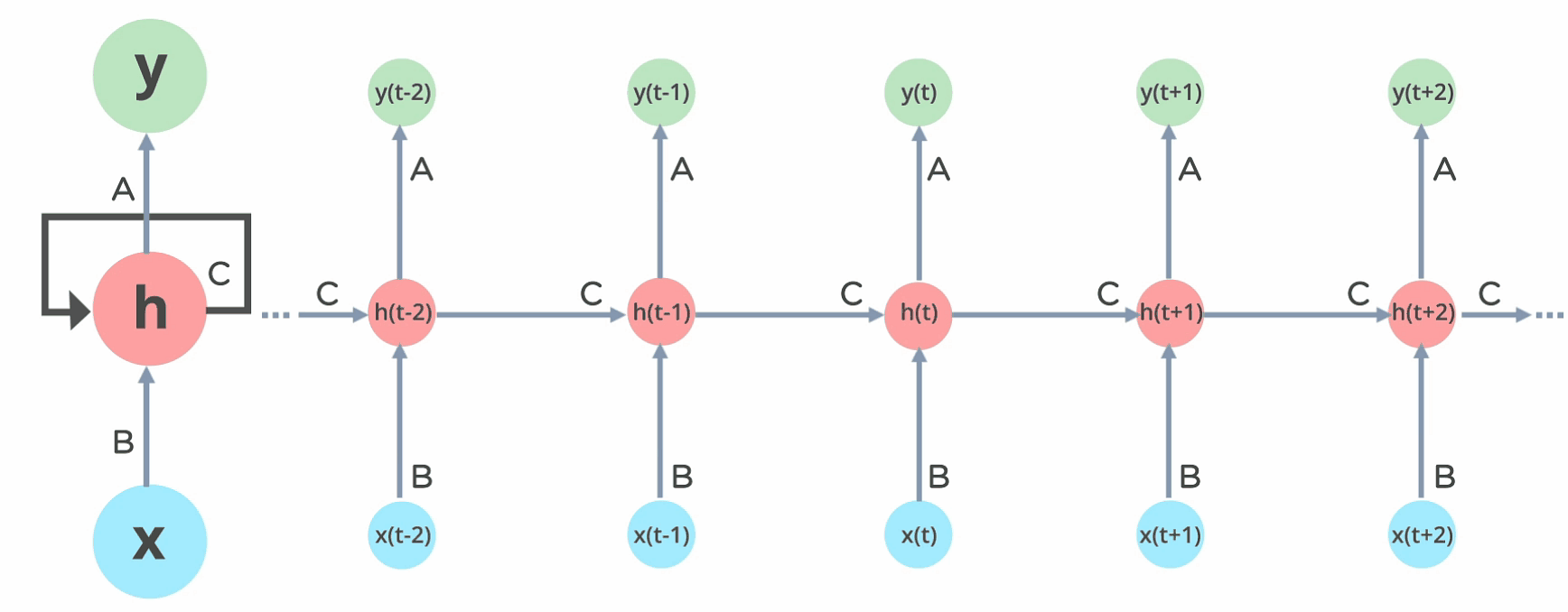
Recurrent Neural Networks RNN Complete Overview 2023
13. Recurrent Neural Network is basically a generalization of feed-forward neural network that has an internal memory. RNNs are a special kind of neural networks that are designed to effectively deal with sequential data. This kind of data includes time series (a list of values of some parameters over a certain period of time) text documents, which can be seen as a sequence of words, or audio.

Recurrent Neural Networks RNNs Ppt Powerpoint Presentation File
This is a neural network that is reading a page from Wikipedia. This result is a bit more detailed. The first line shows us if the neuron is active (green color) or not (blue color), while the next five lines say us, what the neural network is predicting, particularly, what letter is going to come next.
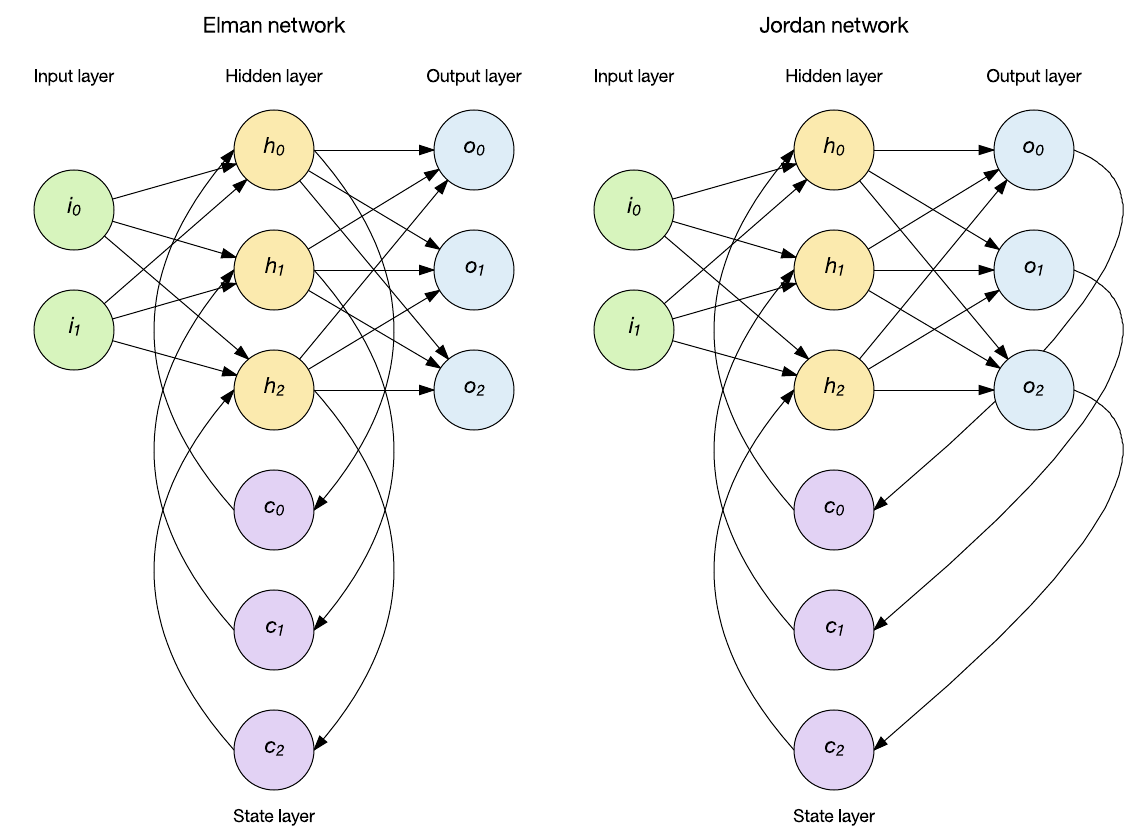
5.1 Recurrent Neural Networks — Fundamentos de Deep Learning
The recurrent neural network works on the principle of saving the output of a layer and feeding this back to the input in order to predict the output of the layer. Now lets deep dive into this presentation and understand what is RNN and how does it actually work. Below topics are explained in this recurrent neural networks tutorial: 1.
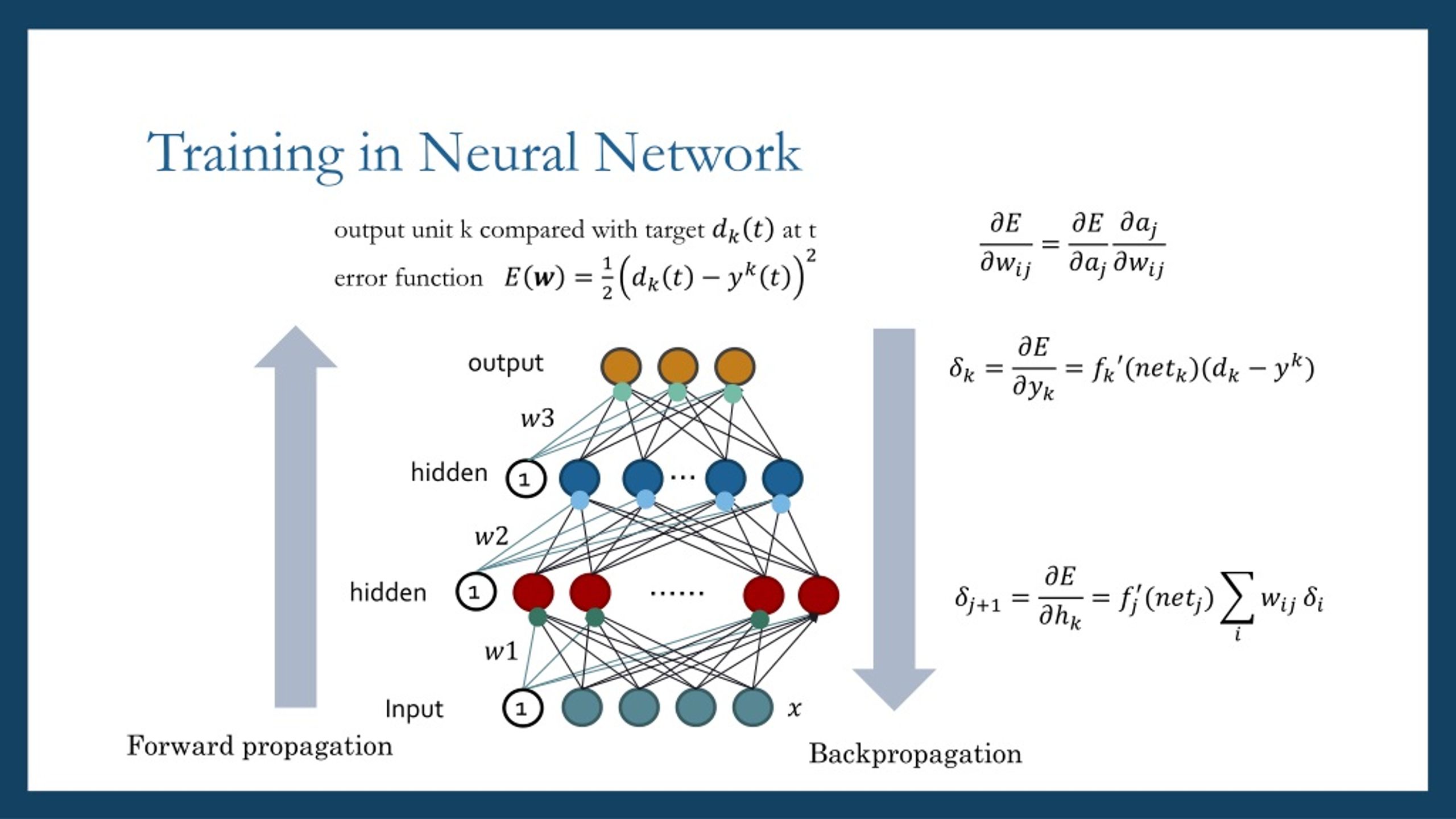
PPT Recurrent Neural Networks & LSTM PowerPoint Presentation ID8876003
Recurrent Neural Networks Recurrent Neural Networks (RNNs) o er several advantages: Non-linear hidden state updates allows high representational power. Can represent long term dependencies in hidden state (theoretically). Shared weights, can be used on sequences of arbitrary length. Slides by: Ian Shi Recurrent Neural Networks (RNNs) 5/27

Simple Explanation of Recurrent Neural Network (RNN) by Omar
9.1 Recurrent Neural Networks A recurrent neural network (RNN) is any network that contains a cycle within its network connections, meaning that the value of some unit is directly, or indirectly, dependent on its own earlier outputs as an input. While powerful, such networks are difficult to reason about and to train.
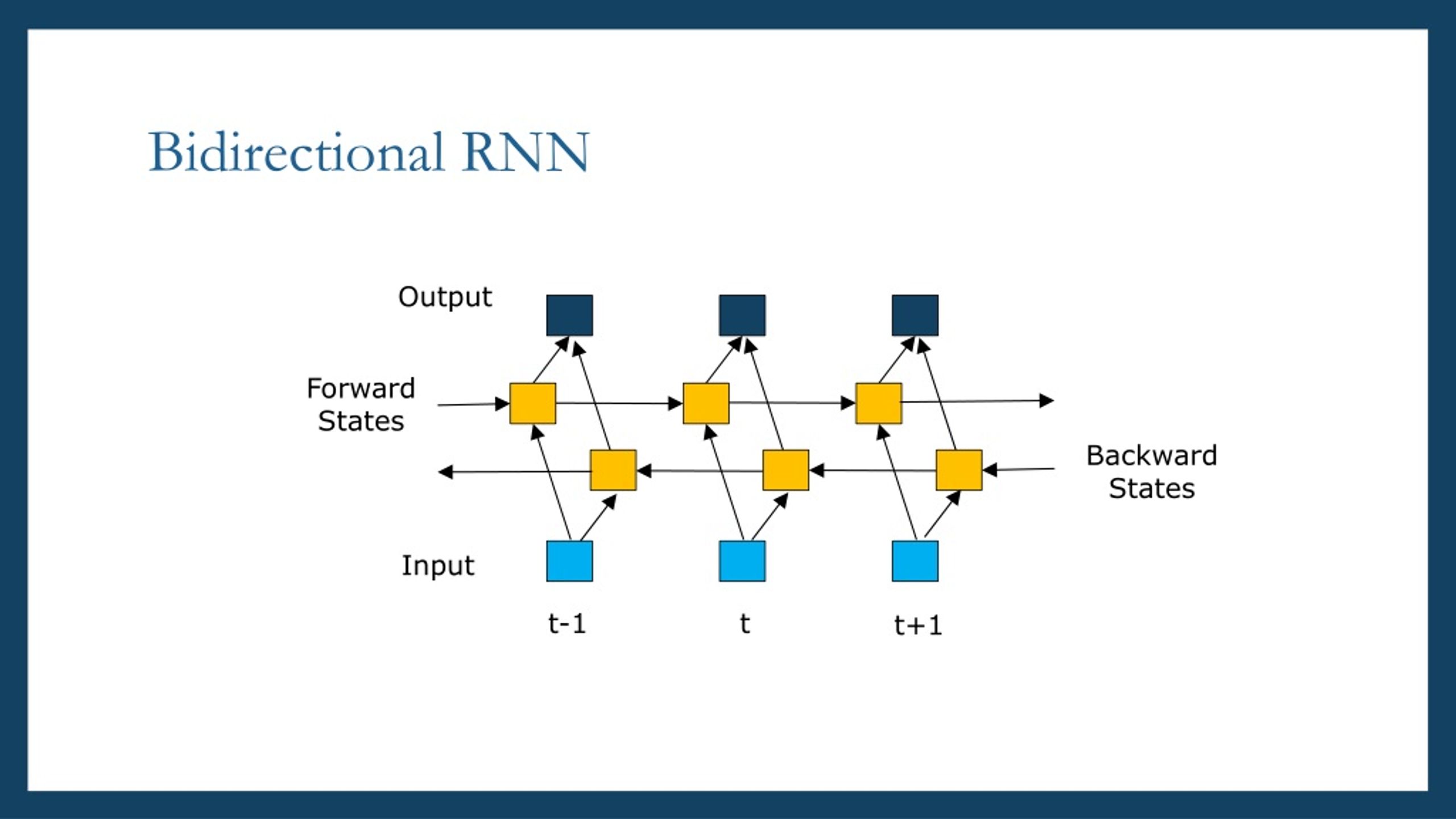
PPT Recurrent Neural Networks & LSTM PowerPoint Presentation ID8876003
Explain Images with Multimodal Recurrent Neural Networks, Mao et al. Deep Visual-Semantic Alignments for Generating Image Descriptions, Karpathy and Fei-Fei Show and Tell: A Neural Image Caption Generator, Vinyals et al. Long-term Recurrent Convolutional Networks for Visual Recognition and Description, Donahue et al.
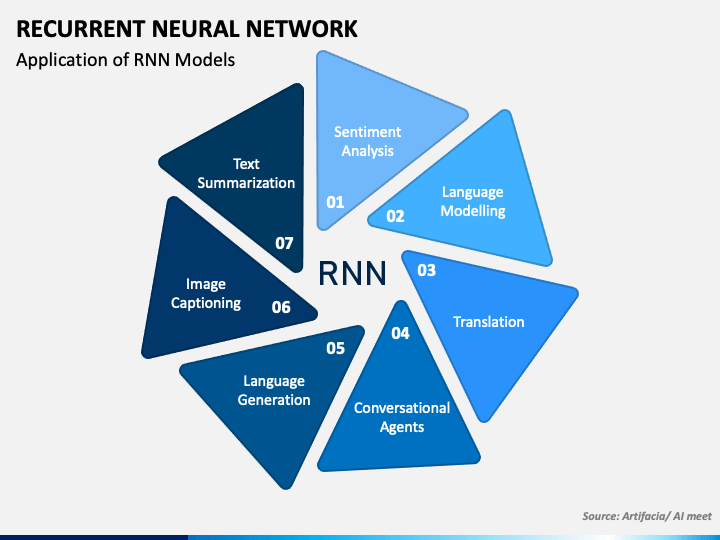
Recurrent Neural Network PowerPoint Template PPT Slides
Recurrent Neural Network x RNN y We can process a sequence of vectors x by applying a recurrence formula at every time step: Notice: the same function and the same set of parameters are used at every time step. Fei-Fei Li, Ranjay Krishna, Danfei Xu Lecture 10 - 24 May 7, 2020
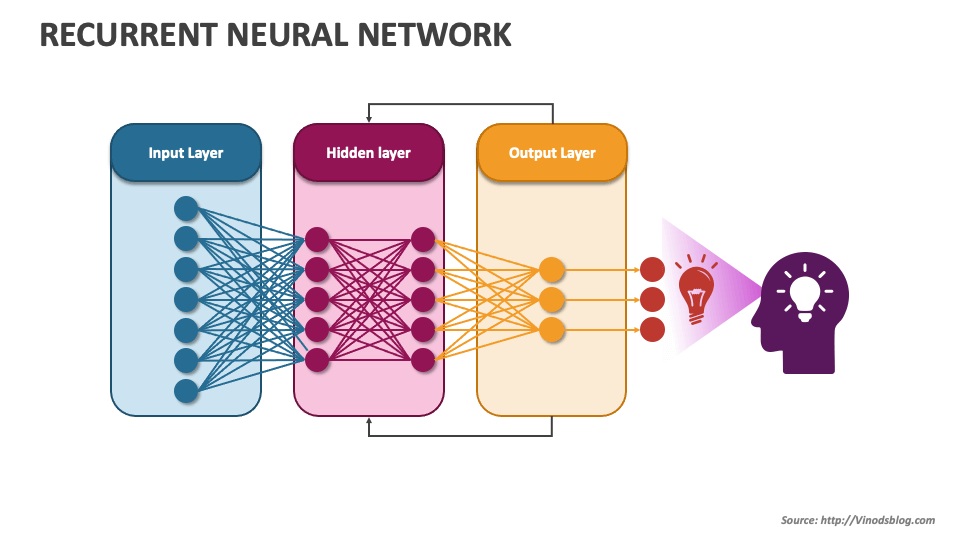
Recurrent Neural Network PowerPoint and Google Slides Template PPT Slides
This paper applies recurrent neural networks in the form of sequence modeling to predict whether a three-point shot is successful [13] 2. Action Classification in Soccer Videos with Long Short-Term Memory Recurrent Neural Networks [14] 2. GRU 1. A new type of RNN cell (Gated Feedback Recurrent Neural
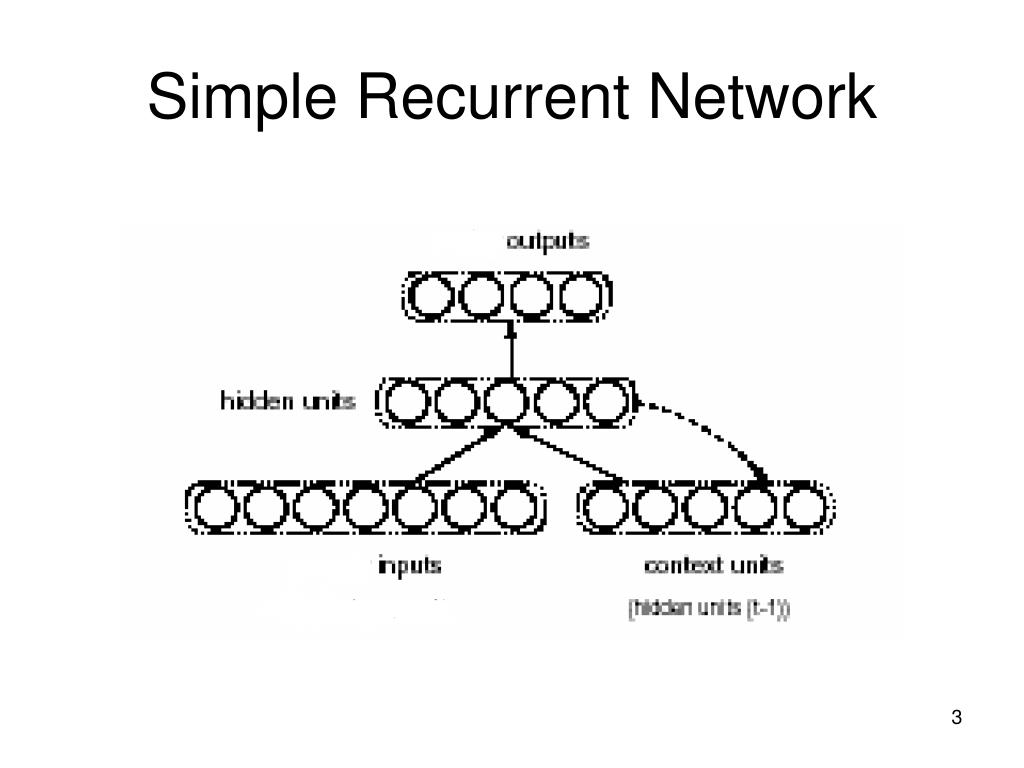
PPT RECURRENT NEURAL NETWORKS PowerPoint Presentation, free download
Motivation. Both Multi-layer Perceptron and Convolutional Neural Networks take one datasample as the input and output one result, are categorised as feed-forward neural networks (FNNs) as they only pass data layer-by-layer and obtain one output for one input (e.g., an image in inputwith an output of a class label) There aremany time-series data.